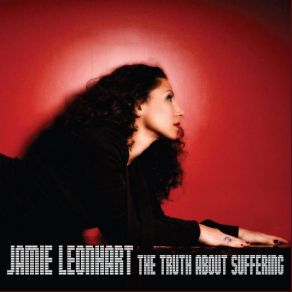The Truth About Suffering
Download links and information about The Truth About Suffering by Jamie Leonhart. This album was released in 2008 and it belongs to Jazz, Rock, Alternative, Songwriter/Lyricist, Contemporary Folk genres. It contains 16 tracks with total duration of 57:15 minutes.

|
|
|---|---|
| Artist: | Jamie Leonhart |
| Release date: | 2008 |
| Genre: | Jazz, Rock, Alternative, Songwriter/Lyricist, Contemporary Folk |
| Tracks: | 16 |
| Duration: | 57:15 |
| Buy it NOW at: | |
| Buy on iTunes $9.99 | |
Tracks
[Edit]| No. | Title | Length |
|---|---|---|
| 1. | Take Your Time | 4:51 |
| 2. | Area | 3:29 |
| 3. | Forward Motion | 4:37 |
| 4. | Hush | 4:10 |
| 5. | Grow | 4:16 |
| 6. | Who Says Words | 2:55 |
| 7. | Spider and the Fly (Intro) | 1:03 |
| 8. | Spider and the Fly | 3:00 |
| 9. | Satisfy Your Soul | 3:50 |
| 10. | Rainbow Connection | 3:34 |
| 11. | After the Rain | 3:32 |
| 12. | The Truth About Suffering | 3:55 |
| 13. | Simple Day | 2:02 |
| 14. | Sheltering Sky | 4:09 |
| 15. | Encomium | 5:35 |
| 16. | The Truth About Suffering (Reprise) | 2:17 |
Details
[Edit]Some uninformed individuals who don't know much about jazz will claim that Joni Mitchell, Norah Jones, Nellie McKay, Leslie Feist, and Tori Amos are all examples of full-time straight-ahead jazz singers. Not true — all of them are singer/songwriters who have worked primarily in pop/rock (although McKay's appealing live performances of Tin Pan Alley standards in clubs indicate that she is quite capable of singing jazz when she puts her mind to it). However, all of them have been influenced by jazz and/or cabaret and have used them to their artistic advantage, which is exactly what singer/songwriter Jamie Leonhart does on her first full-length album, The Truth About Suffering. This impressive effort is not straight-ahead jazz any more than Mitchell's Court and Spark or Jones' Come Away with Me are straight-ahead jazz; there is a major difference between what Leonhart does and what hardcore jazz vocalists like Kitty Margolis, Vanessa Rubin, and Karrin Allyson have done. But there is no denying that jazz, cabaret and traditional pre-rock pop have had a very positive effect on the dusky pop/rock/adult alternative songs that Leonhart offers on this 57-minute CD. She brings an intriguing variety of influences to the table, ranging from Mitchell, Amos, and Jones to Peggy Lee and Kurt Weill. There are, at times, hints of the Beatles on The Truth About Suffering; the Fab Four certainly did a lot to broaden and expand rock when they incorporated elements of cabaret, torch singing, and English dance hall music, and Leonhart gives the impression that she is well aware of that fact. Leonhart wrote or co-wrote most of the material, which frequently has a way of being introspective, contemplative, melancholy, and dreamy all at once. The Truth About Suffering, which was produced and arranged by her husband Michael Leonhart, is a consistently impressive outing from this New York City-based singer/songwriter.